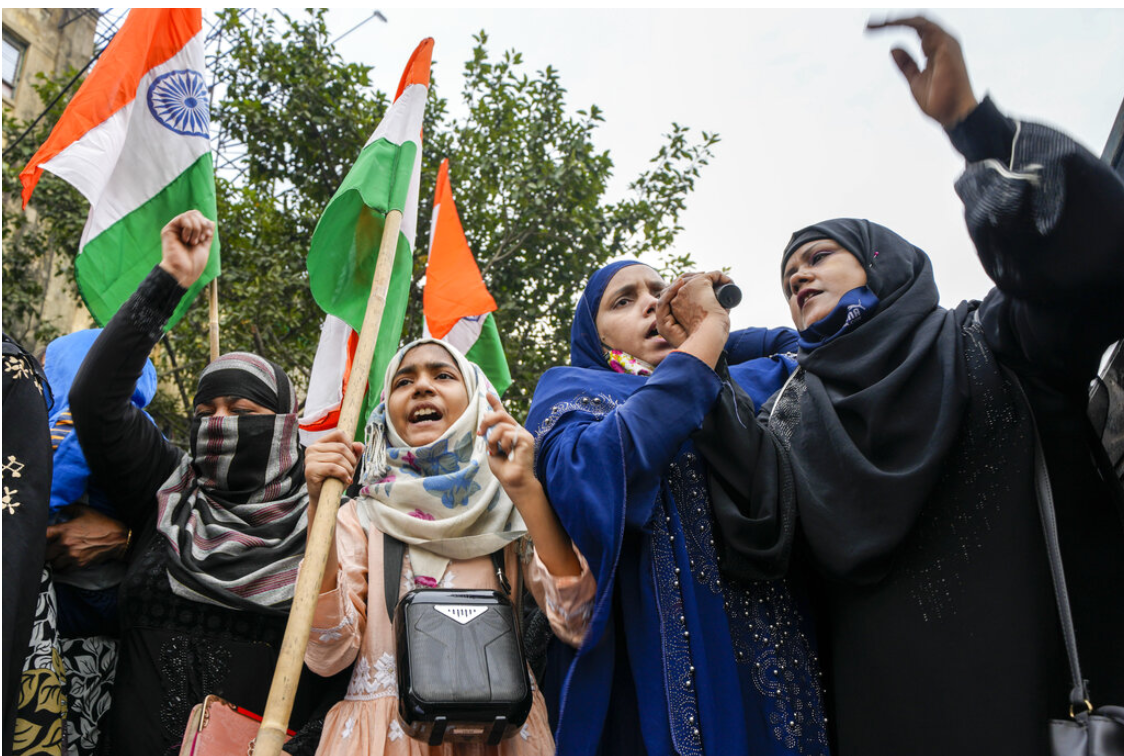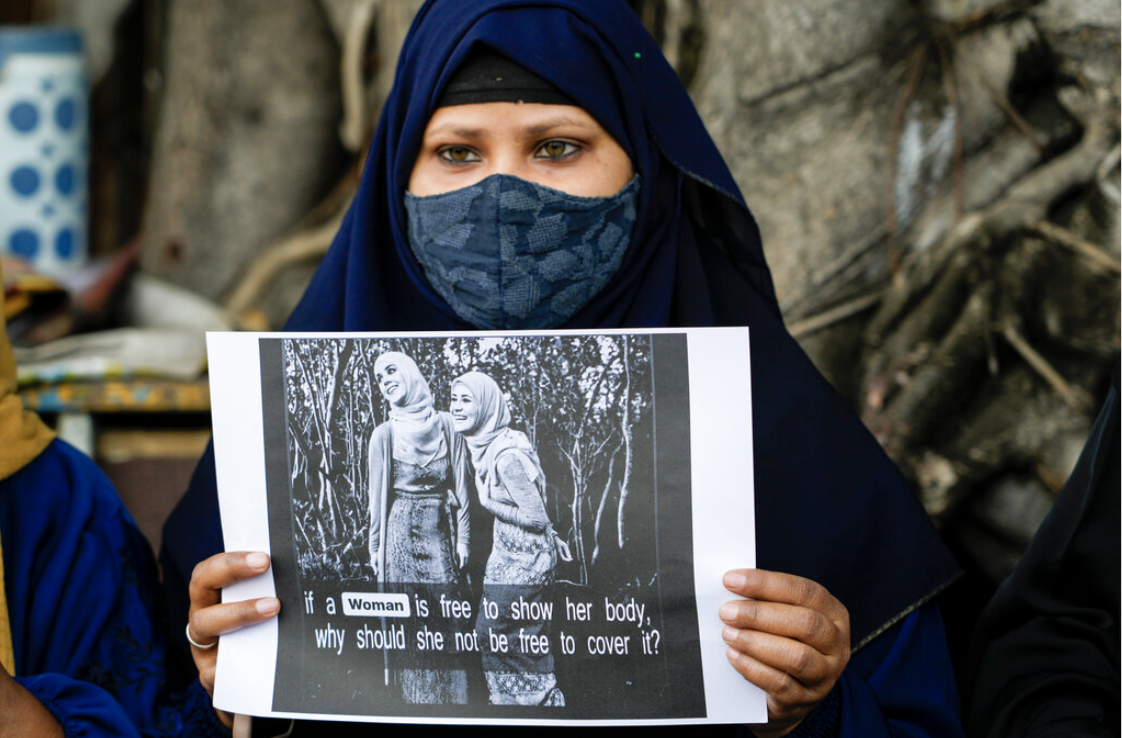Schools in Southern India Shut Down as Country Debates Over Hijabs
Indian Muslim women protesting in Kolkata, India after school districts in the state ban students wearing hijabs from attending classes. Photo: Bikas Das/Associated Press.
The Karnataka government on Wednesday decided to abide by the High Court’s (HC) interim order of banning religious symbols in schools after a series of protests broke out against a ban in schools that prohibited Muslim students from wearing hijabs.
The protests escalated after the local courts in Karnataka, a Southern India state, told students to refrain from wearing any religious dress until they made a verdict on petitions to overturn a ban on students from wearing hijabs in school.
The HC’s order fell in line with the original argument made by school officials and states that argued that hijabs went against set school dress codes. The order specifically indicated that it banned any religious symbols from being shown in schools.
Higher Education Minister of Karnataka, C.N. Ashwath Narayan, stated that pre-university and non-degree colleges that have dress codes must be followed. “Where there is a dress code it has to be followed, and it is not applicable where it does not exist,” said Narayan.
A particularly big protest erupted in Karnataka last Tuesday, as the courts still neglected to make a decision. The protests urged the courts to pass an order to remove the bans that were imposed in Karnataka earlier this month. However, this did not happen.
An Indian Muslim woman holds up a sign during another protest on Thursday, February 10th in Kolkata, India. Photo: Bikas Das/Associated Press.
As a result of the protests, some schools and colleges throughout Karnataka were shut down. The courts have been urging schools to open again, as they claim to make a decision promptly. “We will pass an order. But till the matter is resolved, no student should insist on wearing religious dress,” the Press Trust of India news agency quoted Chief Justice Ritu Raj Awasthi saying.
As the ban still stands, girls across the southern region of India are being denied entry at the door of their schools for refusing to conform to dress codes that do not allow them to wear hijabs. Meanwhile, schools and colleges have been opening up for all other students.
The original protests began in the Southern Indian state after a pre-university in Udupi refused to let six Muslim girls enter their classrooms because they were wearing hijabs in early January. Following the official ban on religious clothing in schools, protests spread across the region to other South Indian states like Tamil Nadu and Telangana, which are also debating over rules and regulations regarding Hijbas.
The Organization of Islamic Cooperation (OIC) expressed “deep concerns” to India about recent mistreatment of Muslims, though these were quickly dismissed as OIC was thought to be a biased organization because of its comments on issues related to Kashmir and Jammu.
In an effort to show solidarity and bring more attention to the ongoing issue of anti-Islam behavior in schools, several Hindu students came into schools wearing crimson shawls– a color representative of Hinduism.
The courts are set to meet later this week to hear petitions regarding the ban on hijabs. According to Senior Advocate and Professor Ravi Varma Kumar, the agenda for the hearing includes discussing the rule that advocates for informing parents at least one year in advance about any intentions to change the dress code.


